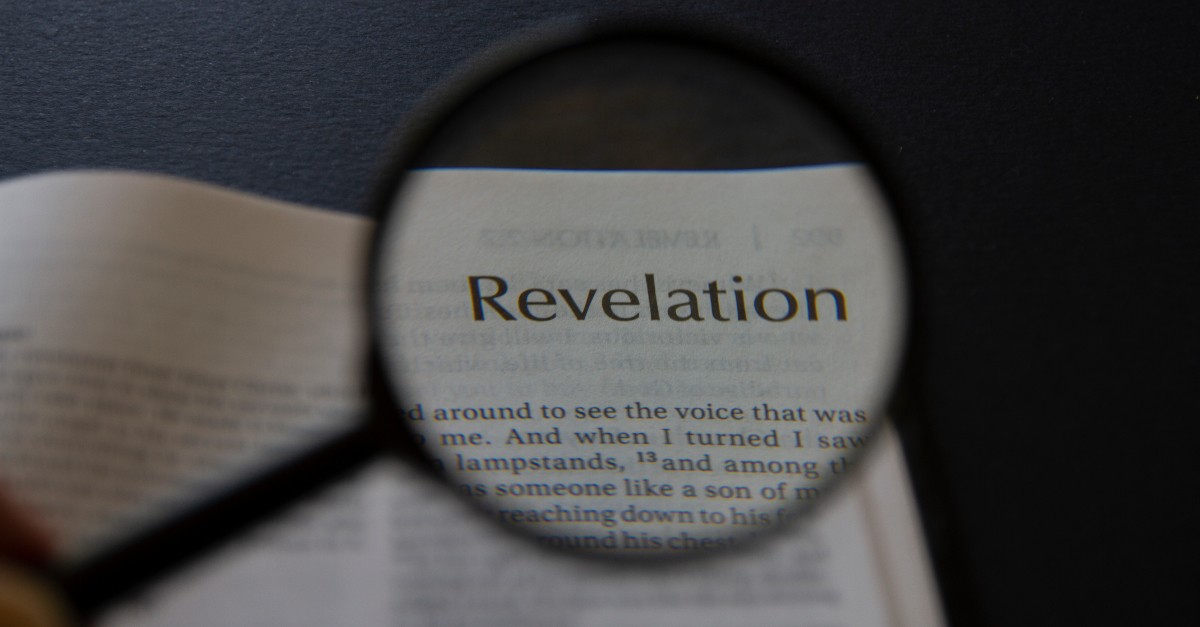10 Things You Should Know about Hell
Slideshows


Audio By Carbonatix
By Sam Storms, Crosswalk.com
I take no special delight in writing this article. But hell is real and people are going there. So let’s look closely at what the Bible has to say about it as well as the on-going debate over whether hell is eternal conscious punishment.
What you and I “like” is utterly and absolutely irrelevant. God doesn’t set his eternal agenda based on what we “prefer”. What we might “hope” to be true simply doesn’t matter. What does or does not make us “feel comfortable” has no bearing on the truth or falsity of this issue. The fact that we have an intuitive sense for what strikes us as “fair” or “just” plays no part whatsoever in coming to a conclusion on whether or not there is an eternal hell. The fact that we may not enjoy the thought of eternal conscious punishment doesn’t make it go away! The fact that you “feel” the existence of hell is inconsistent with your concept of God doesn’t mean there isn’t one. What we “want” or “hope” or “desire” has no relevance at all in this debate. The only important question is, “Does the Bible teach it?” And if the Bible does teach it (and Revelation 14 together with numerous other texts would indicate it does), our responsibility is to believe it and fervently and faithfully proclaim the gospel of Jesus Christ as the only hope sinners have for now and eternity.
Here are 10 truths about hell that we must understand and accept.
Photo Credit: ©Max Kukurudziak/Unsplash

1. There's something called "Gehenna."
The word most often translated “hell” in the NT is Gehenna, the Greek equivalent for “the valley of Hinnom”. This valley is immediately southwest of Jerusalem, still visible from the Mt. of Olives. At one time it was there that human sacrifices were made to the pagan deity Moloch (2 Kings 23:10; 2 Chron. 28:3; 33:6; cf. Jer. 7:31-32; 19:5ff.).
There is an on-going debate among scholars as to whether the Valley of Hinnom actually served as the “city dump” or “garbage heap” of Jerusalem. The evidence strikes me as inconclusive and thus we should avoid being dogmatic on the point. But no one denies that this area was at one time the locale for pagan child sacrifice. That it should be used as a way of referring to the place of eternal torment is therefore understandable. Against the notion that Gehenna was, in the days of Jesus, a garbage dump, see the excellent discussion in Francis Chan & Preston Sprinkle, Erasing Hell: what God said about eternity, and the things we made up (Colorado Springs: David C. Cook, 2011), 56-67; and David A. Croteau, Urban Legends of the New Testament: 40 Common Misconceptions (B & H, 2015), pp. 49-53.
Photo Credit: Maxterdesign/Getty Images

2. The most graphic portrayal of hell is found in Revelation 14:9-11.
There we read: “And another angel, a third, followed them, saying with a loud voice, ‘If anyone worships the beast and its image and receives a mark on his forehead or on his hand, he also will drink the wine of God’s wrath, poured full strength into the cup of his anger, and he will be tormented with fire and sulfur in the presence of the holy angels and in the presence of the Lamb. And the smoke of their torment goes up forever and ever, and they have no rest, day or night, these worshipers of the beast and its image, and whoever receives the mark of its name.” (Revelation 14:9-11)
Photo Credit: ©Playbackmedia.com/SparrowStock

3. Eternal smoke and sulfur are actually described.
John goes on to describe the duration of this punishment in two statements in v. 11. First, the “smoke” of their torment, i.e., the smoke of the fire and sulfur (v. 10) “goes up forever and ever” (see Isa. 34:9-10 for the OT background). It is almost as if there is a smoldering testimony to the consequences of sin and the justice of God’s wrath. The duration of this phenomenon is said to be, literally, “unto the ages of the ages”.
This terminology occurs 13x in Revelation: 3x with reference to the duration of praise, glory, and dominion given to God (1:6; 5:13; 7:12); 5x with reference to the length of life of God or Christ (1:18; 4:9,10; 10:6; 15:7); once referring to the length of God’s reign in Christ (11:15); once referring to the length of the saints’ reign (22:5); once referring to the ascension of the smoke of destroyed Babylon (19:3); once referring to the duration of torment of the devil, beast, and false prophet (20:10); and, of course, once here in 14:11.
Second, “they have no rest, day or night” (the latter phrase being parallel to “forever and ever”). In Revelation 4:8 the same terminology occurs with regard to the duration of worship on the part of the four living creatures. That from which they have “no rest” is, presumably, the torment caused by the fire and brimstone.
Photo Credit: Zoltan Tasi/Unsplash

4. The act of punishment may or may not be eternal.
Do texts such as this speak of eternal punishing (with focus on the act of judging) or eternal punishment (with focus on the effect of judgment)? In other words, what is it that is eternal or unending: the act of punishing unbelievers, or the effect of their punishment? Again, is the torment of the lost a conscious experience that never ends? Or is the punishment a form of annihilation in which, after a just season of suffering in perfect proportion to sins committed, the soul ceases to exist? Does the ascending smoke of their torment point to the unending conscious experience of suffering they endure? Or does it signify a lasting, irreversible effect of their punishment in which they are annihilated? Those who argue for the latter view contend that there will be no rest “day or night” from torment while it continues or as long as it lasts. But whether or not it lasts forever or eternally must be determined on other grounds.
Photo Credit: Unsplash/Thomas Bormans

5. Our view of hell depends on our view of an "immortal soul."
Many, but not all, of those who affirm annihilationism are also conditionalists. That is to say, they deny that the soul is inherently or naturally immortal and affirm that it acquires immortality only when conferred by God (most often as a constituent element in the gift of salvation). Annihilationists who reject conditionalism simply assert that God, as a punitive act, deprives the unbeliever of immortality at some point subsequent to the final judgment. Most traditionalists affirm that whereas only God is inherently immortal, he irrevocably confers immortality on humans at creation.
Photo Credit: ©GettyImages/metamorworks

6. It's either eternal conscious punishment...or final destruction.
What reasons do people give for denying eternal conscious punishment and affirming annihilationism (or what is sometimes called “conditional immortality”)? Many appeal to the biblical language of hell, primarily the words “to destroy”, “destruction”, and “perish” (see Phil. 3:19; 1 Thess. 5:3; 2 Thess. 1:9; 2 Peter 3:7). The “fire” of hell, so they contend, burns up, consumes, and utterly “destroys” its object, leaving nothing (see Matt. 10:28). Thus, they interpret “destroy” to mean deprive of life and existence, hence the extinction of being. Annihilationists also point to the Greek word often translated “forever” (aion) and insist that it more literally means “age”, referring to a lengthy but limited period of time. One also often hears an appeal to the dictates of justice. It goes something like this: A “just” penalty will be in proportion to the crime or sin committed. How can a sin committed in time by a finite creature warrant eternal, unending torment?

7. There's another debate: Is everything literal?
Those who argue for a traditional concept of hell as eternal conscious punishment begin by pointing out that the word group which includes “destroy” and its synonyms is used in a variety of ways, some of which do not require or even imply the cessation of existence. In other words, a careful examination of usage indicates that destruction can occur without extinction of being. Likewise with the imagery of “fire” in hell, we must acknowledge that this is metaphor, and thus not press the terms to prove something about hell’s duration they were never intended to communicate. Just think of hell in the NT being described at one time as “utter darkness” and at another time as “a lake of fire”. How do these two coexist if they are strictly literal? Thus we must be cautious in drawing rigid doctrinal conclusions about the supposed “function” of fire in hell. One cannot help but wonder about Matthew 18:8 which speaks of those who are thrown into the “eternal” fire. As Carson says, “one is surely entitled to ask why the fires should burn forever and the worms not die [cf. Mark 9:47-48] if their purpose comes to an end” (The Gagging of God, 525). As for the Greek term aion, there are as many texts where it means eternal as there are texts where it refers to a more limited period of time. This argument is indecisive on both sides of the debate.
Photo Credit: ©Playbackmedia.com/Sparrowstock

8. Hell isn't about the magnitude of our sins. It's about the magnitude of God.
As for the argument from justice, we humans are hardly the ones to assess the enormity of our sins. “Is the magnitude of our sin established by our own status, or by the degree of offense against the sovereign, transcendent God?” (Carson, 534). As John Piper has pointed out, “The essential thing is that degrees of blameworthiness come not from how long you offend dignity, but from how high the dignity is that you offend” (Let the Nations be Glad, 127). In other words, our sin is deserving of infinite punishment because of the infinite glory of the One against whom it is perpetrated.

9. God's holiness and righteousness matter—a lot.
Only sin that goes unpunished would indicate a failure of justice and a defeat of God’s purpose. The ongoing existence of hell and its occupants would just as readily reflect on the glory of God’s holiness and his righteous opposition to evil.
Perhaps the idea of endless punishing is less offensive when the idea of endless sinning is considered. In other words, if those in hell never cease to sin, why should they ever cease to suffer? In this regard many point to Revelation 22:11, where the angel says to John the Apostle, “Let the evildoer still do evil, and the filthy still be filthy, and the righteous still do right, and the holy still be holy.”
Says Carson: “If the holy and those who do right continue to be holy and to do right, in anticipation of the perfect holiness and rightness to be lived and practiced throughout all eternity, should we not also conclude that the vile continue in their vileness in anticipation of the vileness they will live and practice throughout all eternity” (533).
If one should reject this notion and argue that people pay fully for their sins in hell and at some point cease to sin, why can’t they then be brought into heaven (thereby turning hell into purgatory)? If their sins have not been fully paid for in hell, on what grounds does justice permit them to be annihilated?
Photo Credit: ©iStock/Getty Images Plus/FOTOKITA

10. Satan will actually suffer eternally.
Finally, one must explain Matthew 25:46 and Revelation 20:10-15. Regardless of what one thinks about the identity of the beast and false prophet, no evangelical denies that Satan is a sentient being. Thus here is at least one such “person” who clearly suffers eternal conscious torment. “We may not feel as much sympathy for him as for fellow human beings, and we may cheerfully insist that he is more evil than any human being, but even so, it is hard to see how the arguments deployed against the notion of eternal conscious suffering of sinful human beings would be any less cogent against the devil” (Carson, 527).
Photo Credit: ©iStock/Getty Images Plus/francescoch

There's just one thing that matters...
What you and I “like” is utterly and absolutely irrelevant. God doesn’t set his eternal agenda based on what we “prefer.” What we might “hope” to be true simply doesn’t matter. What does or does not make us “feel comfortable” has no bearing on the truth or falsity of this issue. The fact that we have an intuitive sense for what strikes us as “fair” or “just” plays no part whatsoever in coming to a conclusion on whether or not there is an eternal hell. The fact that we may not enjoy the thought of eternal conscious punishment doesn’t make it go away! The fact that you “feel” the existence of hell is inconsistent with your concept of God doesn’t mean there isn’t one. What we “want” or “hope” or “desire” has no relevance at all in this debate.
The only important question is, “Does the Bible teach it?” And if the Bible does teach it (and Revelation 14 together with numerous other texts would indicate it does), our responsibility is to believe it and fervently and faithfully proclaim the gospel of Jesus Christ as the only hope sinners have for now and eternity.
Content is taken from the article, 10 Things You Should Know about Hell and Eternal Conscious Punishment, written by Sam Storms and originally published on SamStorms.com. To read the text version, please click the link.
Discuss this topic with us in the Crosswalk Forums!
Related Resource: Demonic–Or Something Else? Sean McDowell's Son's Chilling Encounter
Today, I sit down with my 21-year-old son, Scottie, to briefly unpack a startling street conversation in New York City. While running a “Change My Mind” table at Union Square, he met a self-described Satanist who reached for tarot cards when asked about the identity of Jesus. According to my guest Steve Dabbs, author of "When Demons Surface," this was a genuine demonic encounter. We show part of the encounter, and then analyze the experience through the lens of scripture.
Photo credit: ©GettyImages/pcess609

























